|
Regional History History of Timbering County Histories Oral Histories Calhoun County Gulf County Jackson County Larry Ford Richard Hinson Laurence Pender Sarah Speights Wakulla County |
Voices from Jackson County:
Laurence Pender
Laurence Pender was born in Greenwood, Florida, August 18, 1944, into a prominent family of merchants. At the time of the interview in December 2004, he owned and operated Pender's Store, which has served Greenwood and the surrounding rural area since its construction in 1869. A one and one-half story frame vernacular building, the site was placed on the National Register of Historic Places in 1974. Remnants of the past are everywhere—hat boxes, patent medicine bottle, hooks for harnesses and mule collars, catalogs of dresses, hats, and shoes, and ledgers recording decades of purchases of Jackson County citizens.
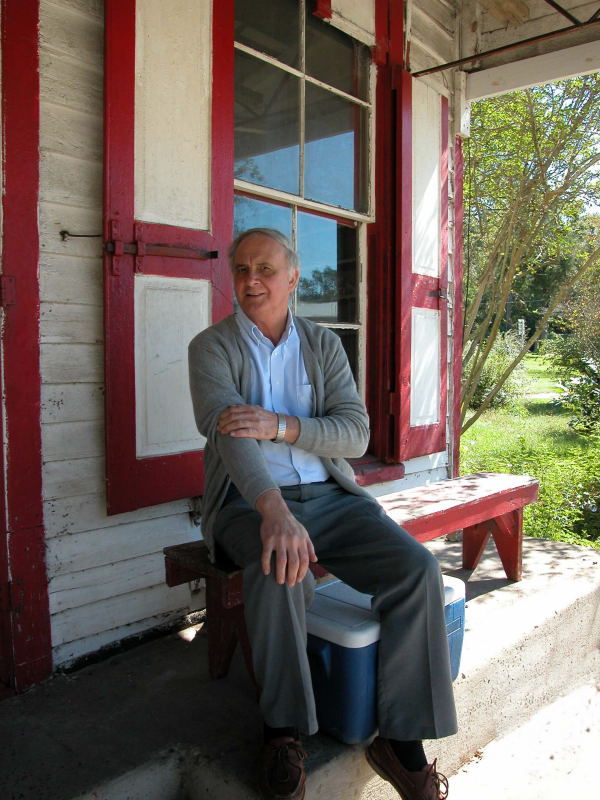 Laurence Pender in front of Pender's store, 2004 |
An important trading center for a thriving agricultural region well into the 20th century, Greenwood had several other general merchandise stores, a cotton gin, and a peanut mill reputed to be the largest independent sheller of peanuts in the United States. Although the schools and other public facilities in Greenwood were segregated into the 1960s, Blacks and Whites alike traded and continue to trade at Pender's Store. Under the 1862 Homestead Act, a number of former slaves were granted land in Jackson County, and they and their descendants became successful, land-owning farmers.
Listen to Laurence Pender's description of the store in the 1920s and 30s when it was owned and operated by his father and uncle: Real Network | Windows Media Player
Click here to read the text of the audio about the store in the 1920s and 1930s.
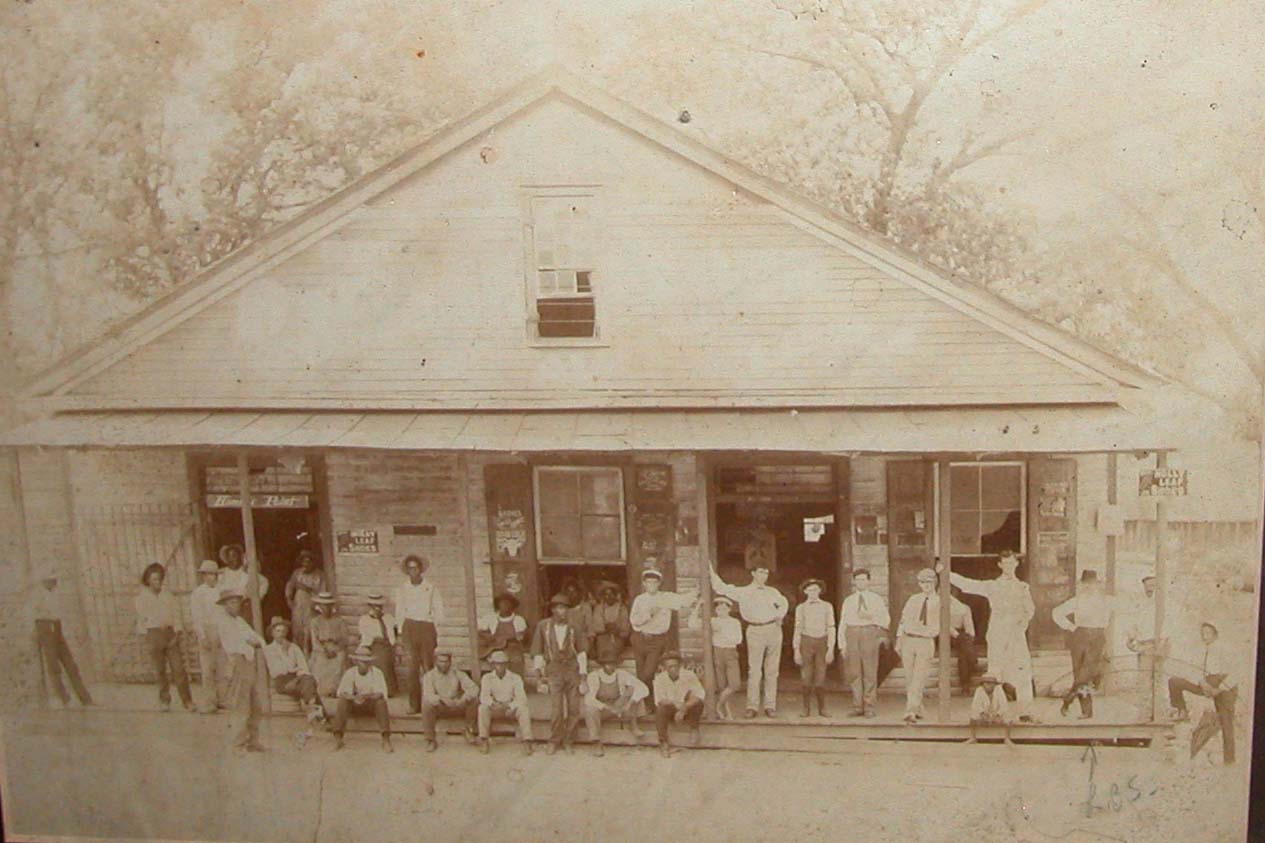 Pender's store in its heyday |
People came to Pender's Store from 15 to 20 miles away on mules and wagons. Women would walk 4 or 5 miles to and from the store with bundles on their heads. They depended on the store for everything they wanted or needed that they could not produce on their own: furniture, notions and fabric, boots and shoes and hats, patent medicines, mule collars and harnesses, oranges, tea, coffee, and sugar, and even coffins. If the store owners saw a need, they would find a way to fill it. Twice a year a tailor came to the store and fitted the more prosperous men for a new suit of clothes. In later years, Pender's Store financed well digging and furnished the pipe, the pump, and everything else needed to supply a household with water. Saturday was the big day, a time to socialize and have fun as well as to trade.
Listen to a description of a "business man's lunch" in Jackson County: Real Network | Windows Media Player
Click here to read the text of the audio about a "business man's lunch."
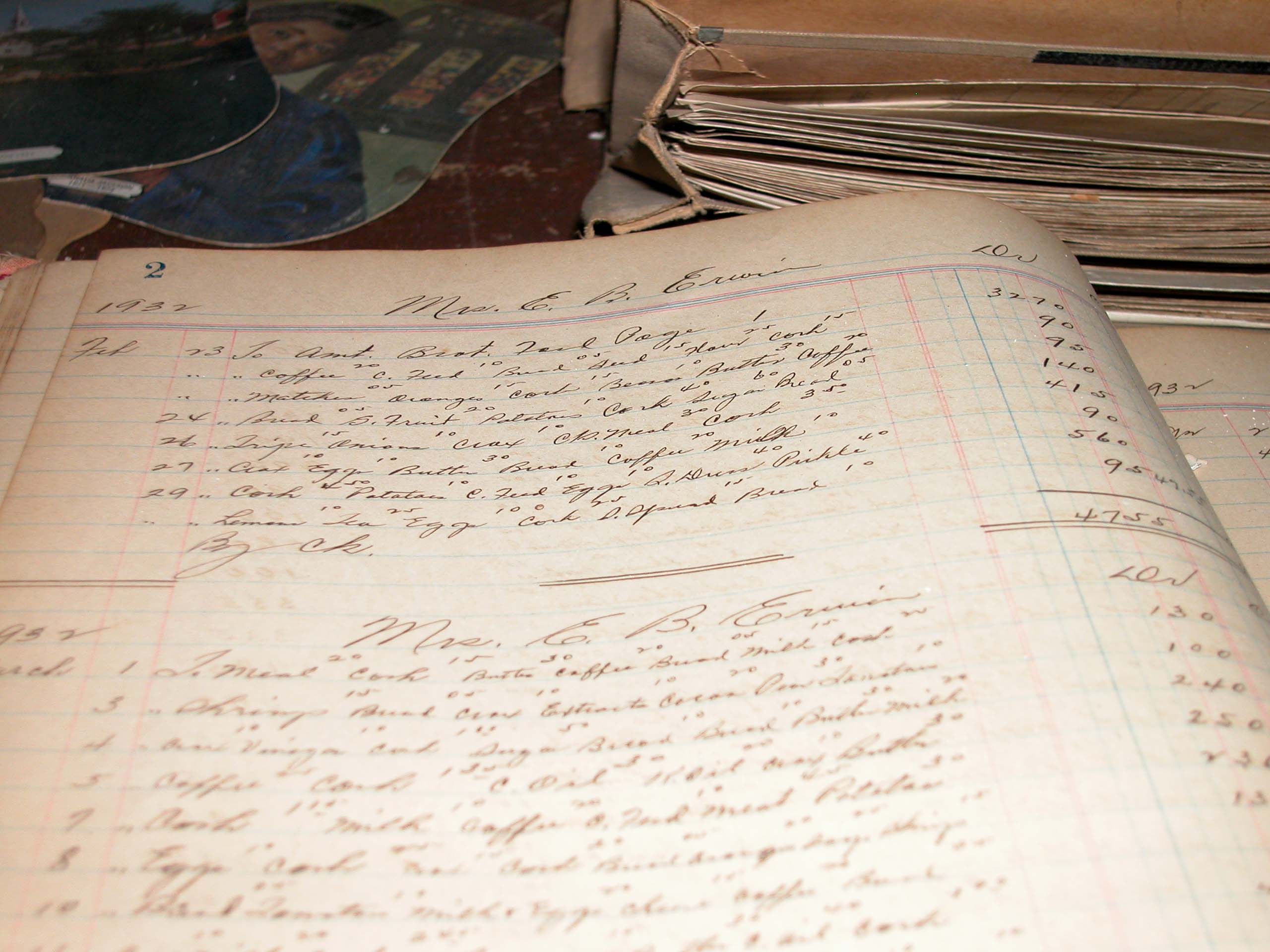 Page from store's ledgers, 1930s |
The store was always run on credit as the farmers had very little cash until they sold their crops in the fall. Notes were held on livestock and crops but not land. A single hog was enough to open an account, although as Mr. Pender recalled “nothing will kill a hog faster than a chattel mortgage.” The Depression hit Jackson County hard in the late 1930s and Pender's Store carried many people through those difficult years. Banks, however, foreclosed on the land of some farmers, and they were forced to leave Jackson County and to seek employment elsewhere, leaving Pender's Store with thousands of unpaid notes. Recovery came to Jackson County with the beginning of World War II and the opening of a large airbase in the vicinity of Greenwood.
Listen to Laurence Pender recall the store's unpaid notes: Real Network | Windows Media Player
Click here to read the text of the audio about the store's unpaid notes.
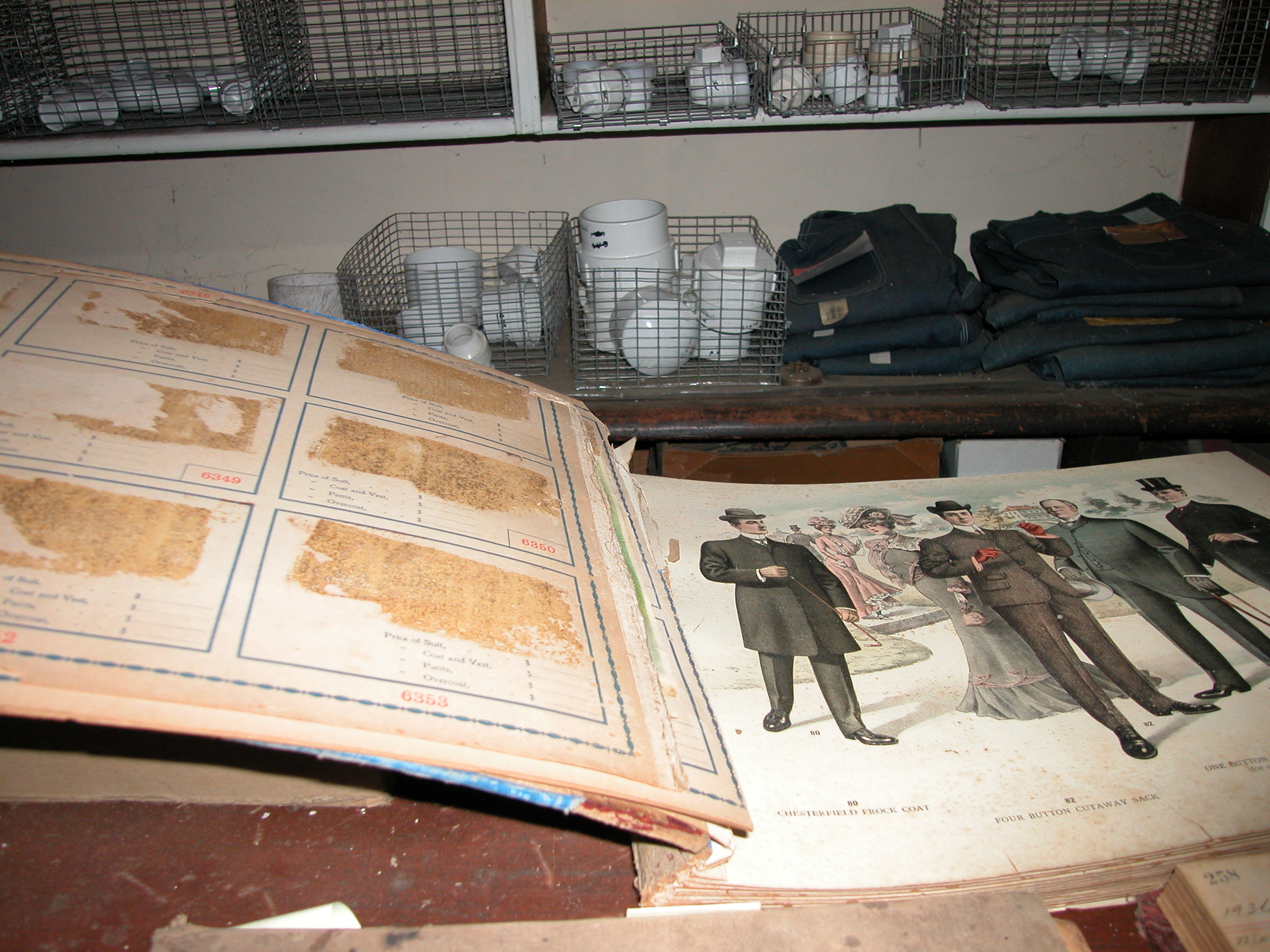 |
Mr. Pender's first recollections of the store were from the early 1950s when he and his brother and cousin would come to the store for “refreshments”—one drink and one moon pie a day—to do small chores and to enjoy the people who came in to gather and talk as well as to trade. He remembers the store as doing a tremendous dry goods business. “They sold shoes, they sold cloth, material, fertilizer by the truckloads, and peanut seed.” In the 1950s all the farmers were still dry land farmers, depending totally on rainfall and growing mainly peanuts, corn, and soybeans and raising a few hogs and cattle. Tractors began to replace mules in the 1950s although some people continued to farm with mules into the 1960s.
Women would bring in eggs and syrup and barter for ribbons and buttons and other notions. Then the man would pay for staples such as flour and sugar. Mr. Pender continues to trade, to provide services, and to visit with people who come into his store. A woman who lives out in the country stops by to pick up a package left by UPS, a man without money for dog food promises to bring shrimp the next time he stops in. Behind his store are three puppies traded for a bag of horse feed. People are constantly stopping by the store and bringing him whatever they happen to have—turnips, mustards, collard greens, sweet potatoes, syrup, oysters from the coast, Brunswick stew for lunch.
When Mr. Pender returned from college to take over the store in 1963 after his father died, he knew everything was beginning to change. Small family farmers were having a harder and harder time supporting their families. Irrigation began in the mid 1960s and soon banks required farmers to have expensive irrigation systems before they would lend them money. Styles also changed and discount stores came into the area. Instead of making clothes for themselves and their families, women bought ready to wear. Gradually Mr. Pender made the transition from dry goods to hardware.
Laurence Pender recalls Greenwood when he was growing up and when he and his wife the late artist Jean Pender were raising their four children in the 1960s and 1970s as “just a wonderful place to live.” When he was a child, he went anywhere he wanted to go, either on foot or horseback. If his home-made saddle pad began to slide off his pony as he rode down the street, someone would set it straight and he go on his way.
Listen to Laurence Pender describe his childhood: Real Network | Windows Media Player
Click here to read the text of the audio about Mr. Pender's childhood.
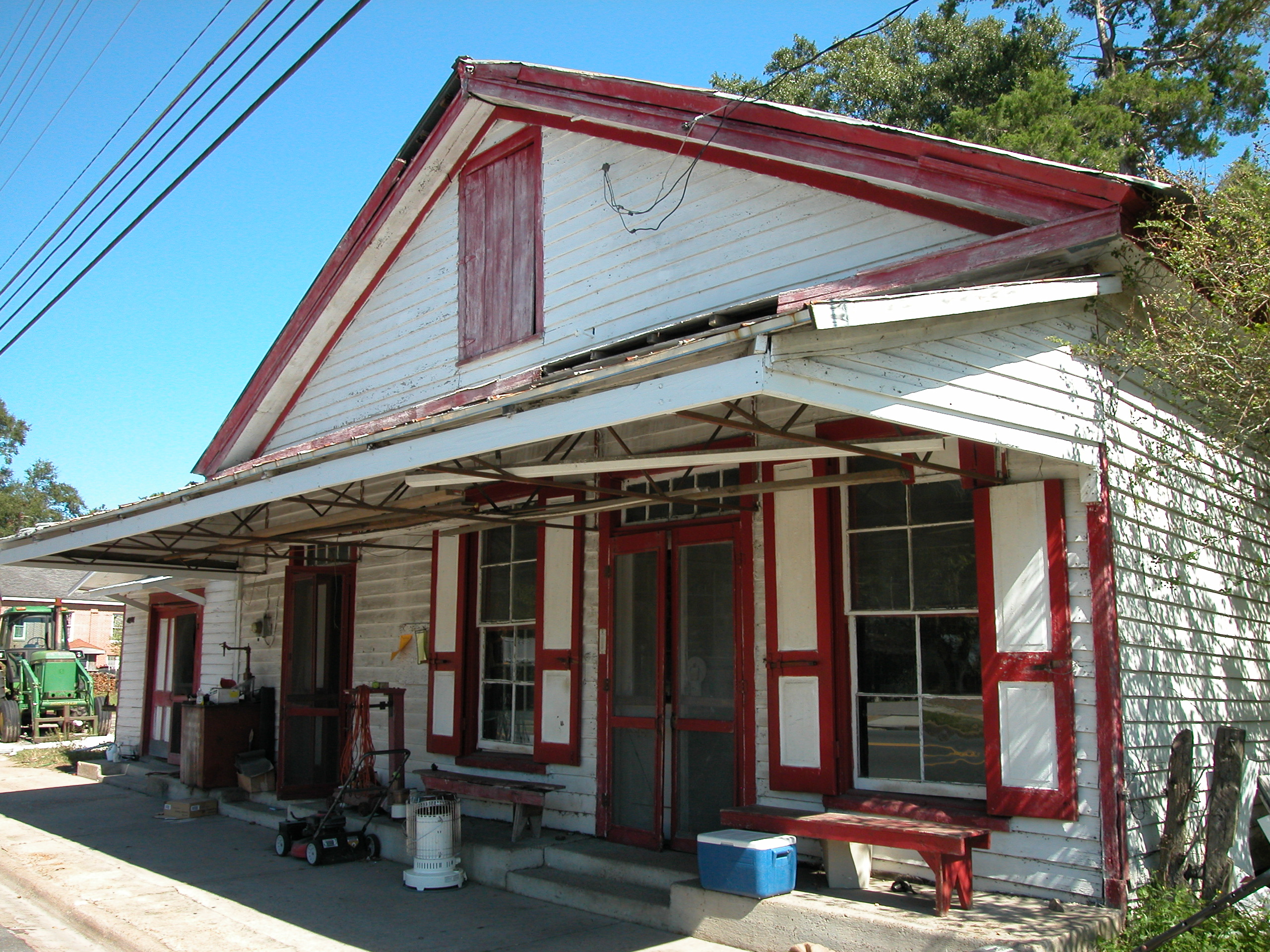 Pender's Store, 2005 |
Around the corner from Pender's Store is the Erwin House, built in the 1830s by John Syfrett of yellow heart pine shipped from Apalachicola. In 1861 it became the home of Colonel John M.F. Erwin. During the antebellum period, the house was along the stage line and people in need of rest were welcomed there. The guest register still exists from these years. Prior to 1900 the well at the Erwin House supplied many Greenwood residents with water. Mr. Pender's mother was one of nine Erwin children, and Mr. Pender recalls how cold the bedrooms were without heat in the winter.
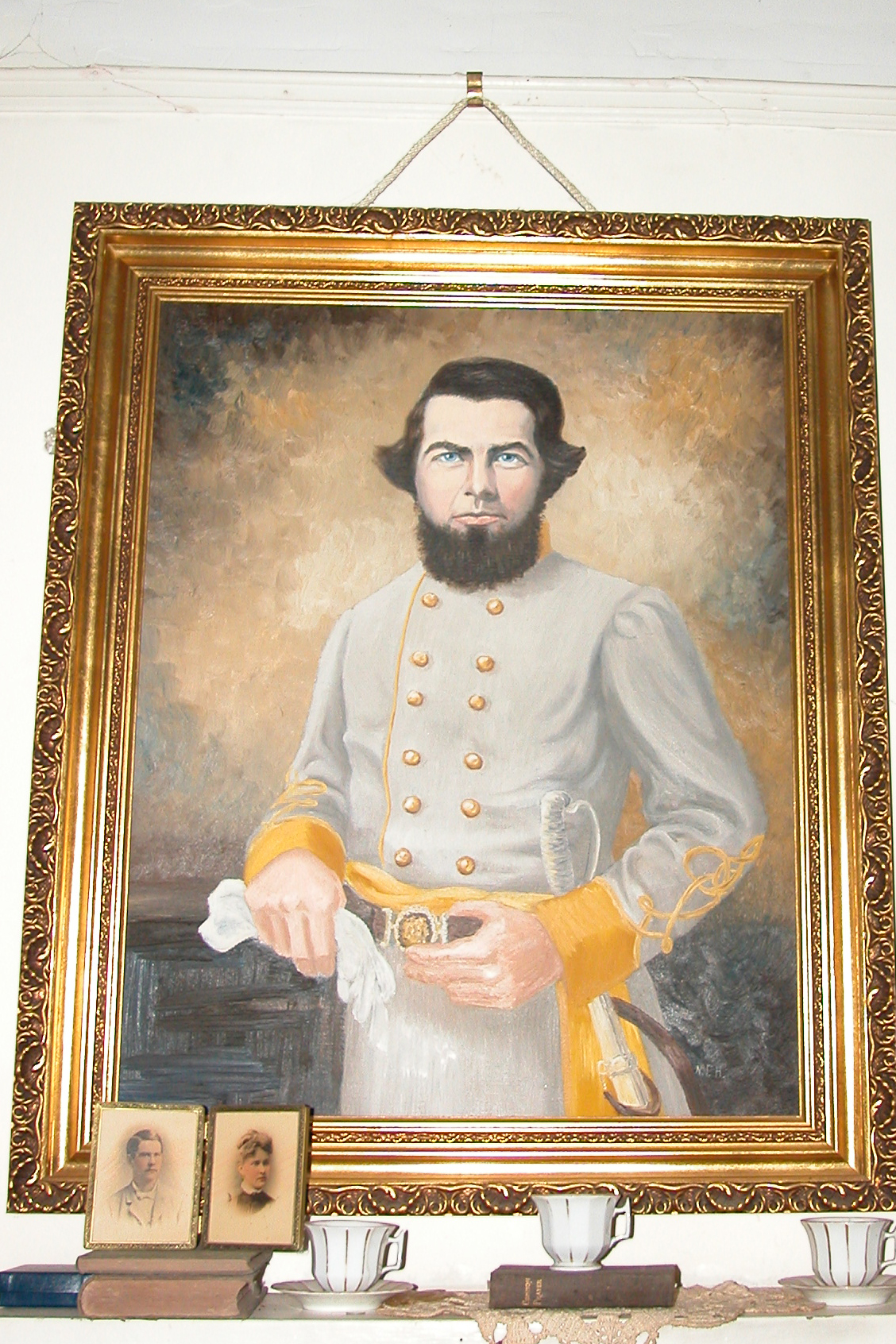 Portrait of Colonel John M.F.Erwin |
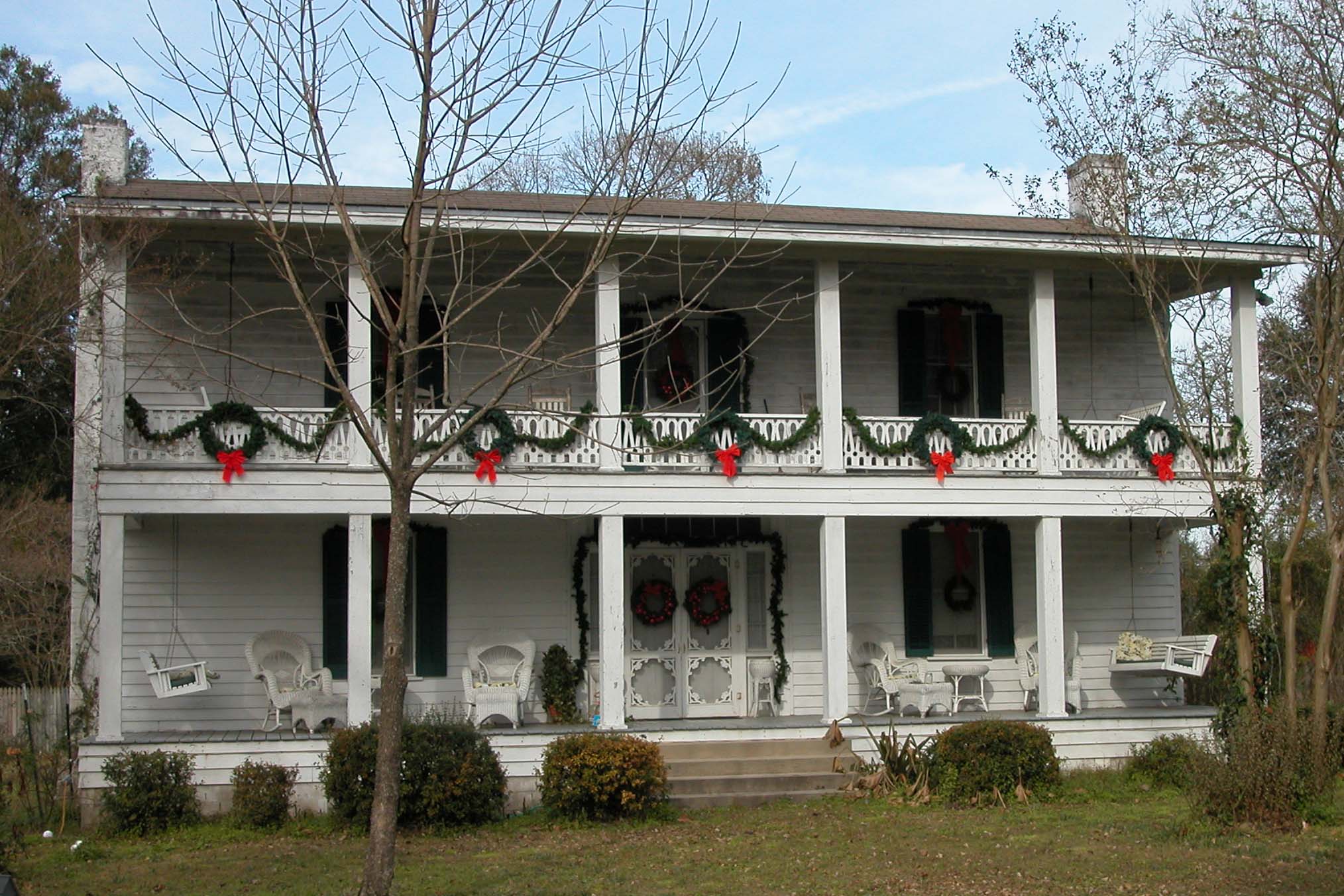 Erwin House, December 2004 |
The house was placed on the National Register in 1974 and today is home to Mr. Pender's son, also named Laurence, and his family.
profile by Elizabeth D. Purdum
Note: The content of the website has not been updated since 2005. The site remains online for it's value as legacy content and is unlikely to be updated.